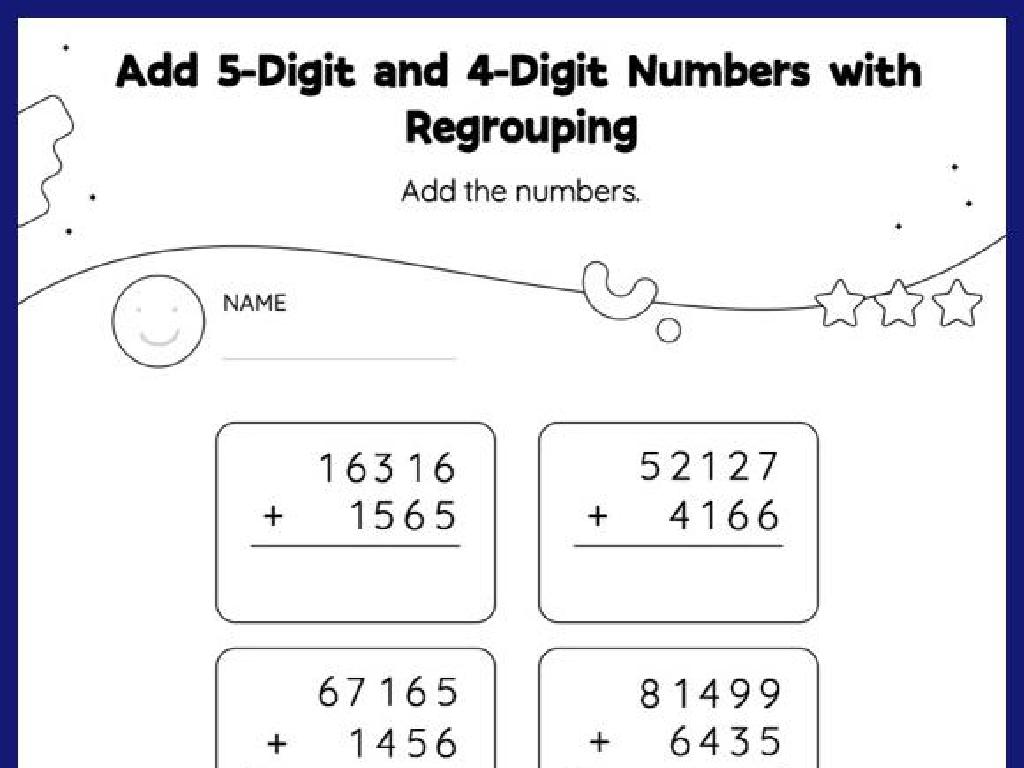The Ghana Empire
Subject: Social studies
Grade: Seventh grade
Topic: African Empires
Please LOG IN to download the presentation. Access is available to registered users only.
View More Content
Exploring the Ghana Empire
– Introduction to African Empires
– Ghana Empire’s geography and era
– Located in West Africa, thrived between 4th and 11th centuries
– Significance in African history
– A major economic power due to gold and trade routes
– Ghana’s influence on trade and culture
– Introduced Islam, architectural styles, and wealth distribution methods
|
This slide introduces the Ghana Empire as a part of our exploration of African Empires. It’s important to set the stage by discussing the concept of empires and their roles in history. The Ghana Empire, located in present-day southeastern Mauritania and western Mali, was a powerful state from the 4th to the 11th century. Its significance lies in its control of gold mines and trade routes, which made it a hub of wealth and cultural exchange in Africa. The empire was instrumental in spreading Islam, influencing architectural styles, and developing sophisticated methods of wealth distribution and governance. Encourage students to consider the impact of the Ghana Empire on modern African borders, languages, and cultures.
The Rise of the Ghana Empire
– Ghana’s geographical benefits
– Strategic location with access to gold mines and trade networks
– Trade routes and gold-salt trade
– Connected to trans-Saharan trade; exchanged gold for salt, essential for preserving food
– Iron technology’s impact
– Iron tools improved farming and warfare, leading to economic and military strength
– Ghana’s ascent to power
|
This slide explores the factors contributing to the rise of the Ghana Empire. Emphasize Ghana’s strategic location, which provided access to gold resources and lucrative trade routes. The gold-salt trade was particularly important, as salt was a valuable commodity in the preservation of food. Iron technology also played a crucial role by enhancing agricultural productivity and military capabilities, allowing Ghana to exert control over its territory and expand its influence. Discuss how these elements combined to establish Ghana as a powerful and wealthy empire in West Africa. Encourage students to consider how geography can impact the development of a civilization and the importance of trade in establishing economic power.
Society and Culture of the Ghana Empire
– Social hierarchy in Ghana Empire
– Kings, elders, and tradespeople had distinct roles.
– Daily life of Ghanaian people
– Farming, trading, and gold mining were common daily activities.
– Religion’s role in Ghana
– Traditional beliefs were intertwined with Islam.
– Cultural influence on daily life
|
This slide explores the rich societal structure and cultural aspects of the Ghana Empire. Discuss the social hierarchy, emphasizing the roles of different classes from the king to common tradespeople. Highlight the daily activities such as agriculture, trade, and the significant gold mining industry. Explain the influence of religion, particularly how indigenous beliefs coexisted with Islam, which was introduced through trade. The cultural practices of the Ghana Empire were deeply influenced by both religion and the wealth generated from trade. Encourage students to compare and contrast the Ghana Empire’s society with modern societies, fostering a deeper understanding of historical cultures and their legacies.
Economy and Trade of the Ghana Empire
– Ghana’s wealth via trade
– Ghana Empire prospered by trading gold, salt, and other resources.
– Goods traded regionally and beyond
– Traded with nearby African kingdoms and distant places like Europe and Asia.
– Silent barter system introduction
– A trading method where no words were exchanged to ensure fair and peaceful trade.
|
The Ghana Empire, located in West Africa, was a powerful kingdom from the 6th to the 13th century. Its economy was primarily based on trade, especially in gold and salt, which were abundant in the region. The empire became a hub for trade routes connecting the African interior with the Mediterranean and the Middle East. Goods such as ivory, spices, and precious stones were also traded. The silent barter system was a unique method used to trade gold for salt between people who spoke different languages, which helped to prevent conflicts and misunderstandings. This system played a crucial role in the empire’s ability to maintain peace and prosperity. Students should understand the significance of trade in the development and wealth of the Ghana Empire and how innovative trading practices like the silent barter system facilitated commerce across cultural boundaries.
Challenges and Decline of the Ghana Empire
– External pressures from rivals
– Attacks from the Almoravids and competing states weakened Ghana.
– Internal challenges faced
– Political instability and leadership struggles disrupted governance.
– Resource depletion impact
– Over-farming and over-grazing led to less productivity.
– The empire’s decline and legacy
– Ghana’s influence waned, but its cultural and economic impacts lasted.
|
This slide examines the factors that contributed to the decline of the Ghana Empire. Students should understand that empires often face external pressures, such as military invasions from neighboring empires, which for Ghana included the Almoravids. Internally, empires can suffer from challenges like political instability and struggles for power, which can weaken the state’s structure. Additionally, the depletion of resources, including agricultural land, can lead to economic decline. Despite these challenges, the Ghana Empire left a lasting legacy in West Africa, influencing future civilizations with its cultural and economic practices. Encourage students to think about how these factors are interconnected and how they can lead to the fall of powerful states.
The Ghana Empire’s Enduring Legacy
– Influence on West Africa today
– Modern borders & governance influenced by the Empire’s structures
– Cultural remnants in society
– Traditions, languages, and festivals trace back to the Empire
– Teaching the Empire’s history
– Schools highlight the Empire’s golden age and trade dominance
– Remembering Ghana’s legacy
– Monuments and oral histories keep the memory alive
|
This slide aims to explore the lasting impact of the Ghana Empire on contemporary West African countries. Discuss how the political and administrative systems of the Empire have shaped the modern governance of the region. Highlight the cultural aspects such as language, music, and festivals that have their roots in the Ghana Empire. Explain the importance of education in preserving the history of the Empire, and how it is taught in schools to ensure that the legacy is passed on to future generations. Emphasize the role of monuments and oral traditions in keeping the Empire’s memory alive in society. Encourage students to reflect on the importance of history in understanding our present and shaping our future.
Class Activity: Create Your Empire
– Imagine your African empire
– Choose location & name your empire
– Decide on the main resource
– Could be gold, salt, or agricultural products
– Design trade routes & social hierarchy
– Who trades? Who rules? Who farms?
|
This activity is designed to engage students with the concept of empire-building by allowing them to create their own empire, inspired by the Ghana Empire. Students should think creatively about where in Africa their empire would be located, considering geographical advantages. They should come up with a unique name that reflects some aspect of their empire’s culture or main resource. Encourage them to think about what resource their empire would rely on for trade and wealth, similar to how Ghana was rich in gold. They should draw a map to show trade routes, considering how geography affects trade. Lastly, students should outline a social hierarchy, thinking about the roles different people would play in their empire. This activity will help students understand the complexities of running an empire and the importance of resources, trade, and social structure. Provide examples of trade routes and social hierarchies from the Ghana Empire to guide them.






